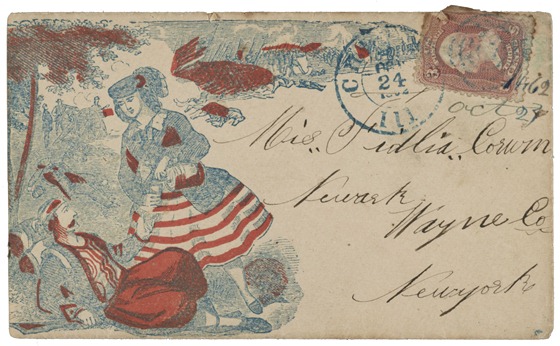Friday, October 24th.
A letter from Jimmy, the first we have received since New Orleans fell. It was dated the 10th inst., and he spoke of being on the eve of running the blockade, and going to Liverpool “to represent our unfortunate navy,” as he says, though I am at loss to imagine what he can mean. He speaks of a kind friend, a Mr. George Trenholm,[1] whose kindness has been perfectly extraordinary. He has befriended him in every way.
Charlie has just come by the railroad, bringing other letters from him, to mother and Lilly. In mother’s is his last good-bye on the 12th. Again Mr. Trenholm is the theme. I could not help crying over my dear little brother’s manly, affectionate letter. He says he is sure God will still care for him, He has raised him up friends wherever he has been. He says he lost all his clothing in going to Charleston. There, among other kind people, he met this gentleman, who carried him to his house, where he has kept him ever since, treating him like his son, and forced him to accept a magnificent outfit as a present from him. He procured the appointment which sends Jimmy abroad (I wish Jimmy had been more explicit concerning it; we hardly know what it is, or how long it will keep him). The money he received to pay Jimmy’s passage (received from the Government) he in turn obliged Jimmy to accept, as he sails in one of Mr. Trenholm’s steamers; and not satisfied with that, gives him carte blanche on his house in England, to be filled up with any amount he chooses to name.
Mother went back to Clinton with Charlie that evening, to my great distress; for she hates that odious place as much as I.
I know the life will kill her if it lasts six months longer. How happy I would be, if it were not for the thought of her uncomfortable position there! Lilly agrees with me that, once out of it, she never wishes to see the vile place again. Margret says that when the Lord had finished all the world and all the people, he had some scraps left, and just thought he’d “batch up” Clinton with them. Perhaps she is right.
[1] Secretary of the Treasury of the Confederate States. Later, Colonel James Morris Morgan (“Jimmy” in the Diary), married Mr. Trenholm’s daughter Helen, whose portrait appears on an issue of Confederate bank notes.











